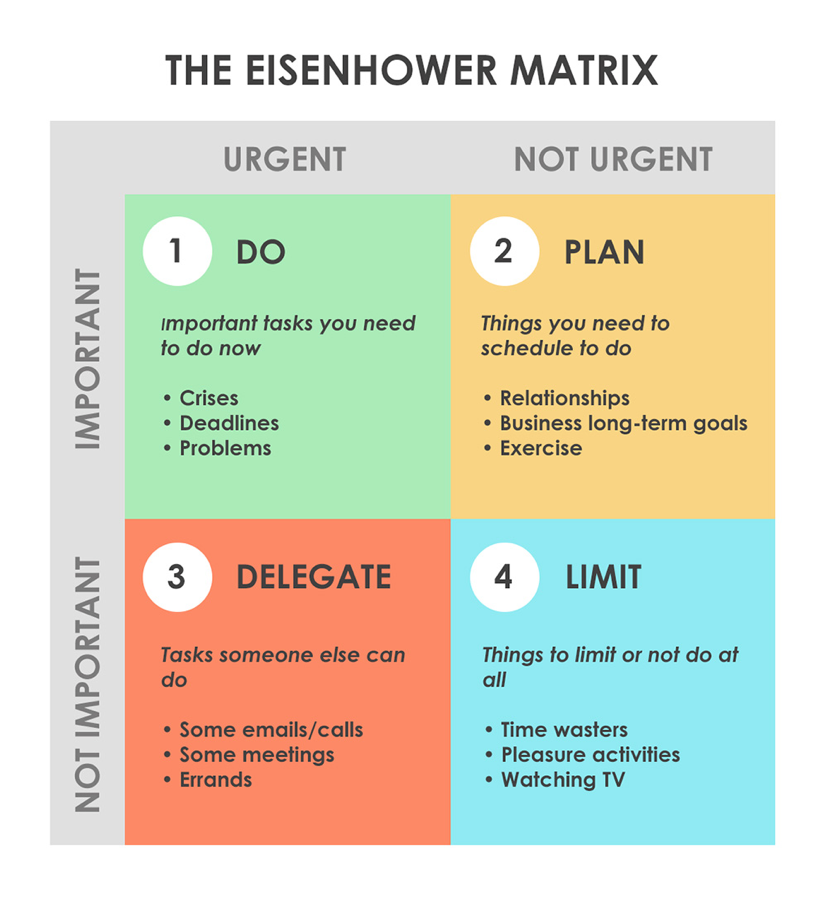My 7 steps to personal effectiveness - Step 7; Delegation
- HR.Blogger
- Aug 4, 2020
- 2 min read
The final stage in my personal effectiveness journey will focus on how to delegate tasks effectively and why it’s important.

The benefits of delegation appear to be quite obvious. Good delegation saves you time, develops and motivates people around you, and also helps to groom a successor. Which is all good for you and your business. Whilst it is clear that being able to delegate work is great, getting there is hard and has a lot of possible pitfuls.

Looking back at the Eisenhower Priority Matrix, it makes you think about how you are prioritising your work and what is holding your back from being truly effective and developing further. You should not be spending your time on the tasks in which you do not add any true value to.
Deciding what not to do is as important as deciding what to do.
Why is delegation so important?
The answer is two-fold:
As mentioned above, it allows you to focus your time on the most important tasks – the ones where you can add the most value or the tasks that only you can do.
It helps develop subordinates or colleagues to perform better – meaning your overall performance will be seen in a better light – and, perhaps, most importantly: by delegating and empowering others you will build stronger relationships.
How to Delegate?
I believe that there are 5 different things you must do when delegating. These are;
Decide what to delegate - do you delegate down to a less experienced team member or delegate up to somebody with specialist knowledge?
Communicate clearly about expectations and process - the key to successful delegation is being absolutely clear about what you're expecting for an outcome.
Empower - delegation is about placing trust and confidence in others and giving them the opportunity to take responsibility and make decisions.
Learn to let go - this one speaks for itself, but many fail with this and often dont choose to delegate as they cannot simply let go.
Invest the time necessary to ensure there is a long term reward - yes delegation is a time investment, but eventually, the return on the time investment is worth it.
I have also come across these 12 tips to hone your delegation skills (I hope you find them useful!):
1 – Don’t look at delegation as a negative.
2 – Stop wanting to do everything yourself.
3 – Be willing to give up some control but if the employee messes up, the responsibility for that mistake ultimately falls on you.
4 – Identify the people to whom you can delegate to.
5 – Match abilities with responsibilities.
6 – Give people responsibility so they can own their mistakes and get recognition.
7 – Set realistic, achievable, measurable goals, so the person you’re delegating to knows what the ultimate goal is.
8 – Make appropriate timelines and deadlines.
9 – Formulate some directions, but don't delegate your voice or vision.
10 – Articulate clearly all expected outcomes.
11 – Identify possible problems and roadblocks before delegating.
12 – Give plenty of advice and encouragement.
Ultimately, if you want to see unprecedented results, you have to make unprecedented sacrifices.
I hope you have enjoyed my series of articles on personal effectiveness. I will continue to write more articles as I do enjoy putting them together - they are a good learning opportunity for me to study these topics.
Stay safe!
HR Blogger









Comments